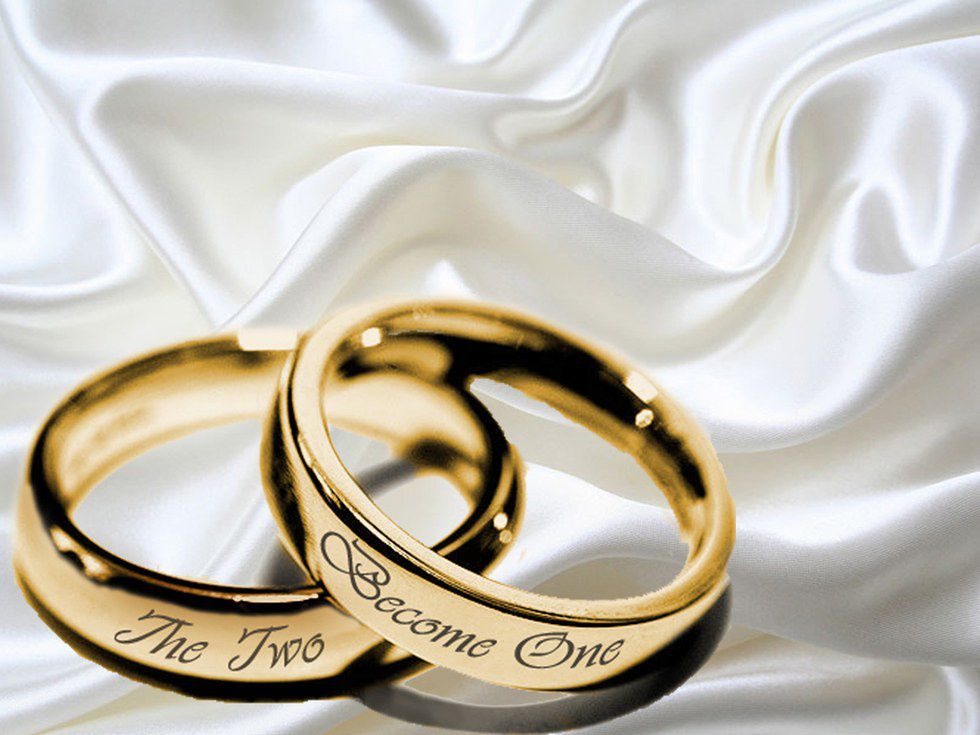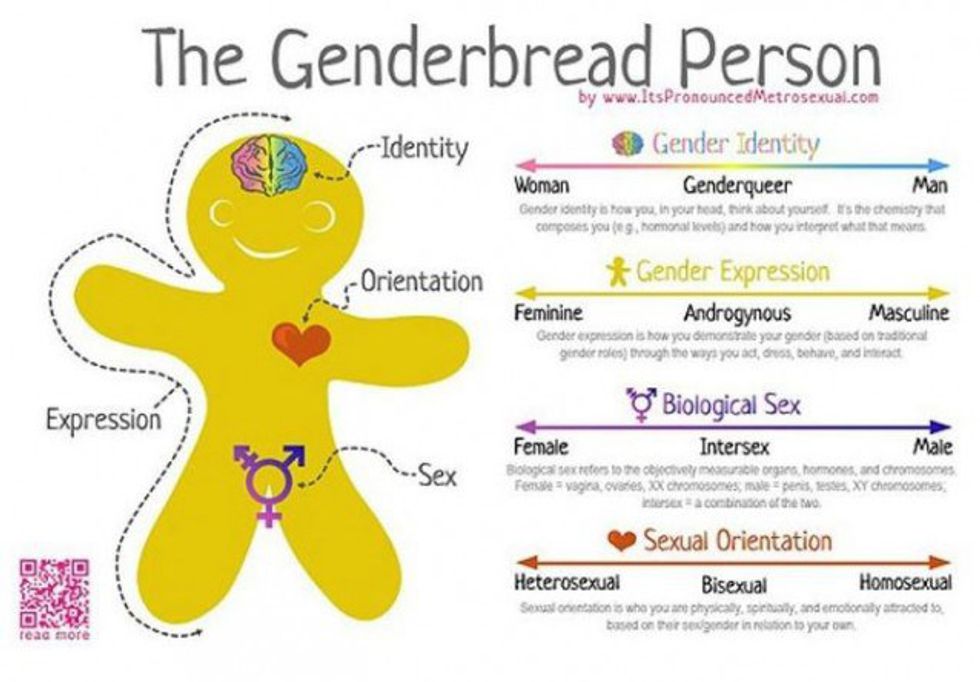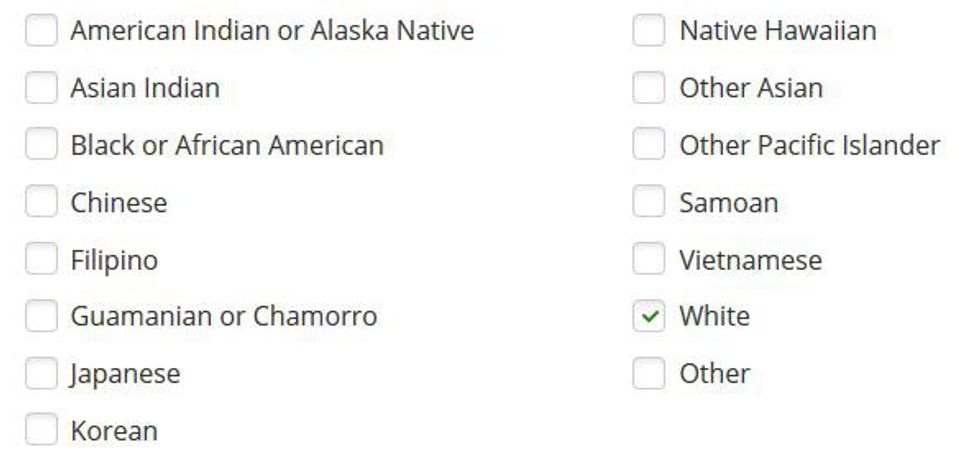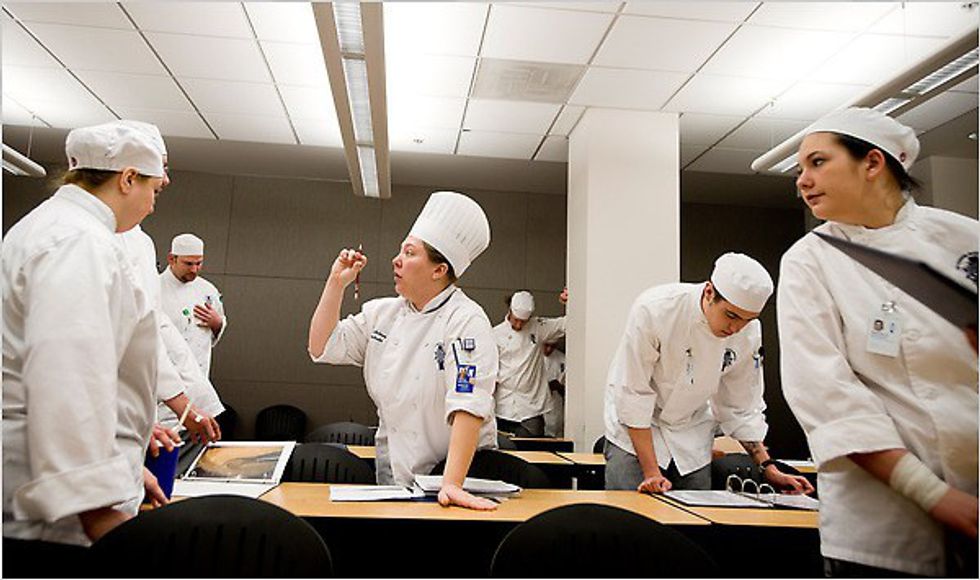Global society holds many cultural universals. Cultural universals are institutions, or groups, that each society has a form of, and each of them come with norms, or rules. At some point in your life, you will likely come across a conflict where you need to decide whether to follow, or to avoid, the rules within these universals. Here are some of the main cultural universals in society that could use tweaking.
1. Marriage
For the longest time the people in society have held the idea that marriage is between a man and a woman, and that everyone participates in it. The goal of most women and men is to find a suitor who they will marry and spend the rest of their lives with in addition to raising children. Regardless of these norms that people have set, there is a growing number of people who live outside of them. For example, there are those who marry the same gender. Another example deals with the decision to marry. Some men and women don't want to get married, and this can come with a variety of options. One is that you can be with someone without going through the formal ceremony of marriage. Another is to lead your own independent and happy life where you don't need to settle down with someone. Any of these interpretations are acceptable, even if they are sometimes looked down upon or not talked about.
2. Family
In addition to getting married, people are expected to have a family; and not only is this a must, but giving birth is stressed. Adoption is acceptable, but “experiencing the miracle of childbirth” is forced into our heads. When women say that they don't want children, people will say, “You'll change your mind,” and will try to convince them that it is a must. Men also can express that they don't want children, and they are convinced that being a parent is a part of life, and it is best for them. The one thing that isn’t told enough to those who don’t want to is that is is okay. It is fine if your personal choice is to not have children. There is nothing wrong with this; you can still have a fulfilled life without having kids.
3. Gender
Gender has a few different rules in society. One deals with gender roles. Women are expected to care for their children as their main role, and sometimes hold a job that doesn’t get too much in the way of it. Men are expected to be the breadwinner, and are also expected to be emotionless in many scenarios; they are only allowed to cry if there is a death in the family, for example. These rules are starting to be broken every day, though there is still more work to be done. People need to realize that their gender can’t prevent them from doing what they want to, and if it ever does, there is something wrong. Another part of gender deals with expression. Women are expected to wear skirts, tight shirts, and makeup in order to “be pretty.” All those who wear baggier clothes, and such, are marked as tomboys. They are also mistaken for men in some scenarios, and are usually told to “dress girlier” or to “look like a girl.” Men are expected to not wear tighter clothing, skirts, or anything that would make them look “girly.” These standards for gender expression only hold people down. There are many who choose to express themselves however they want to, and this is perfectly acceptable. You shouldn’t dress like a man or a woman, you should dress like yourself. The last issue deals with gender itself. Some people don’t agree with the gender they were born with, and sometimes want to change it. This is not something for others to judge; if someone feels as though they belong to a gender different from their biology, or aren’t sure if they do, they can decide what’s best for them.
4. Race
When you are handed an application for anything, you are supposed to pick from a list of different races to describe yourself. Throughout history, people have labeled other's races based off of their physical features such as skin color. There have also been stereotypes associated with race such as one having higher intelligence, or more athletic ability than others. These stereotypes are very inaccurate since there is no single gene that determines ones’ intelligence or athletic performance. There is also hardly any genetic diversity among our species. After watching a documentary for my education class about race, I learned that approximately 85 percent of humans have almost identical genetic information. This means that humans are nearly the same across the board, and not even their difference in phenotype makes that big of a difference. There are other humans on this earth who have the same mitochondrial DNA as you even if their ancestors are from Africa and yours are from Ireland; we all migrated from the same place as homo-sapiens. Therefore, people should be able to decide which race they belong to, and it shouldn’t be confined to a small list. For example, my friend is of Cuban and Indian descent, and though his skin is dark, he doesn’t consider himself black. Many people argued with him about how he really is because of his skin color, but do they have the right to? The person should be able to decide, shouldn’t they?
5. Schooling
Throughout middle school, teachers stress the importance of going to a great high school in order to get into a nice college, and later, get a good job. One type of high school is usually regarded as a less favorable: vocational school. Most people that go to vocational school are marked as “less intelligent” and are told that they only go there to take shop instead of academic classes. People are also critical of the fact that most of them go right into the workforce, or to a trade school. This is something that needs to stop. Teachers need to look at the jobs that these students get: plumber, carpenter, chef, designer, etc. Many of these jobs have a higher salary than the jobs that graduates will get after four years or more of college. Middle school teachers need to start to talk about the other job options like being a pilot, bus driver, garbage man, or anything like that. These jobs, as well as jobs in the trade industry, are completely underrated, and the people who hold these jobs love them. Every kid should be able to find their passion, and have a desire to fulfill it no matter what the teacher thinks about their job. If you want to be an engineer, or a contractor, go for it! Nothing should stop you.
Though there are many other norms within the cultural universals in society that need to be reformed, these five are a good start. There is a lot of progress being made in these universals regarding breaking away from the original norms. If people continue to make their own decisions about who they want to be, and defend them, we will grow closer to a society that is more accepting to all.


























